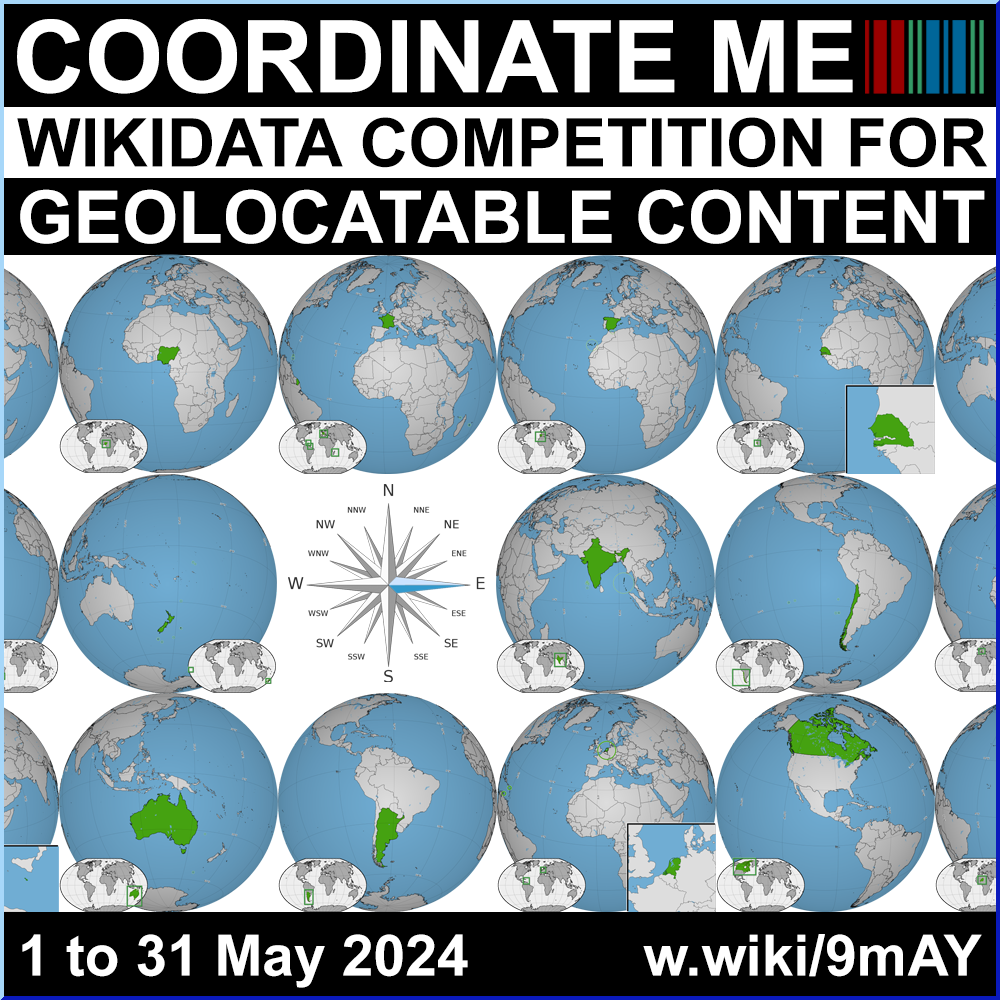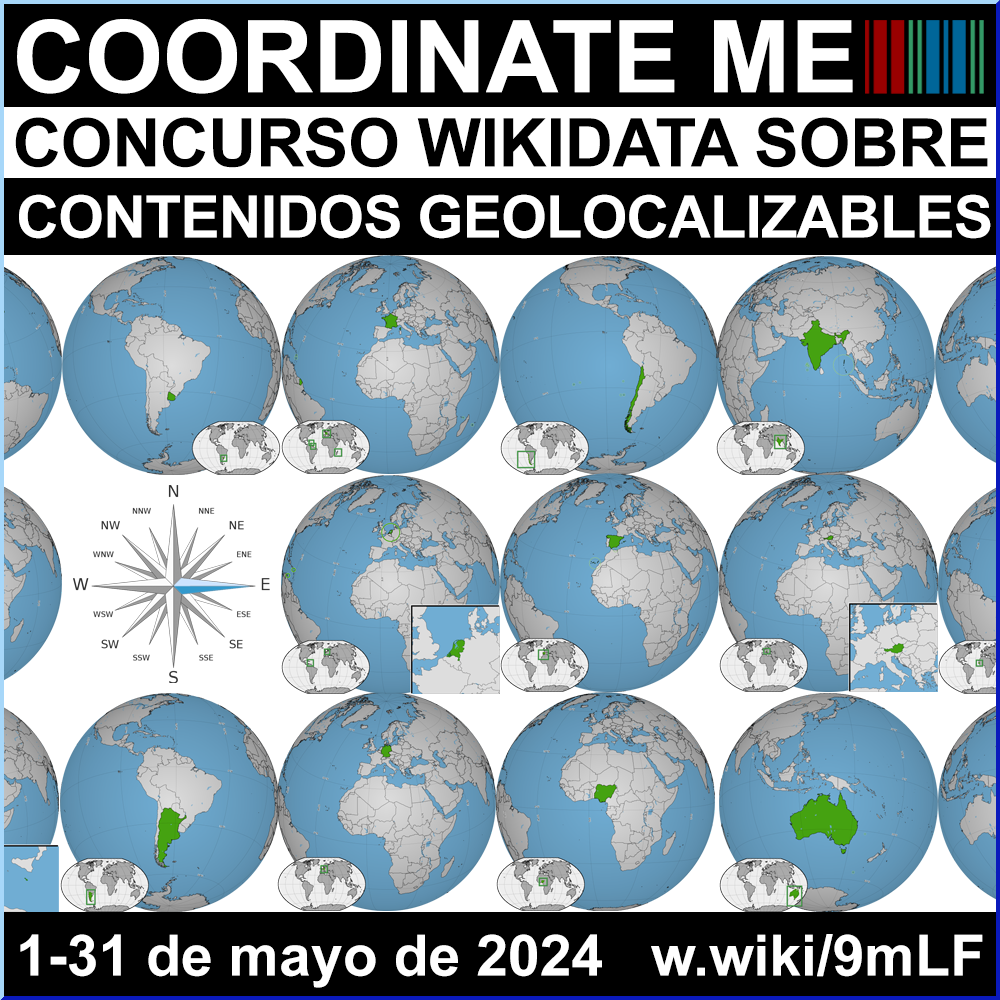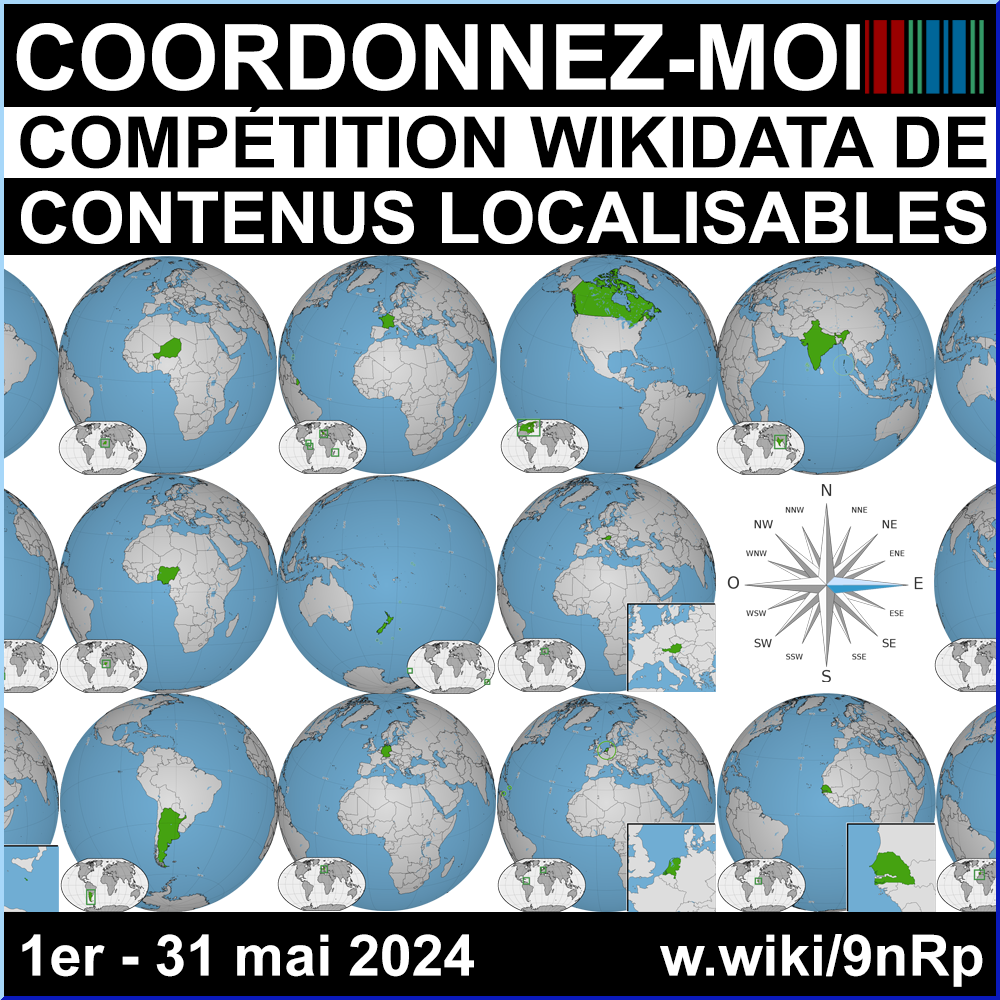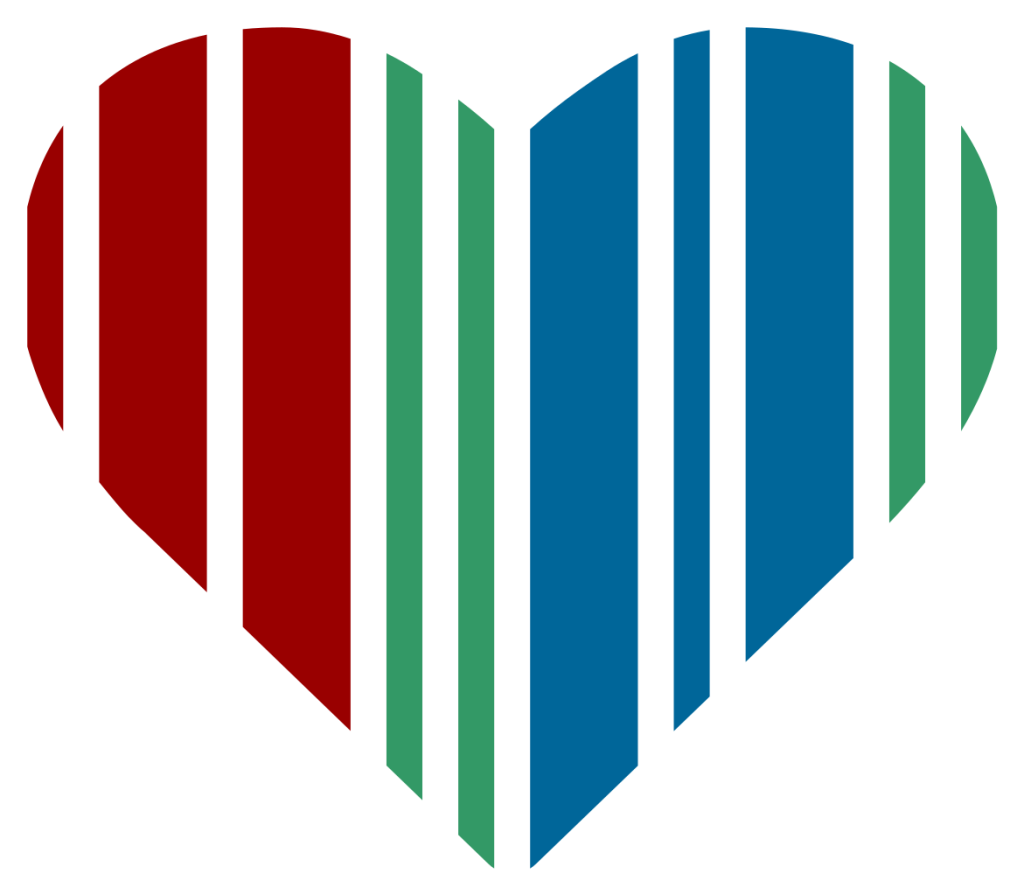3228 registered participants and 129,102 edited Wikidata items: that’s the result of Coordinate Me 2024, the largest international Wikidata contest to date. The competition took place in May 2024 and was organized by Wikimedia Austria. What did we learn?



What was it about?
The goal of the competition was to improve Wikidata items that contained geodata and were assigned to one of the 16 focus countries. People from all over the world were invited to take part. When selecting the focus countries, we aimed for diversity: both geographically and in terms of the size of the local Wikimedia communities. In Africa, we opted for Niger, Nigeria and Senegal, and in South America for Argentina, Chile and Uruguay. In Europe, we chose Austria, Germany, France, Malta, the Netherlands and Spain. Australia, New Zealand, Canada and India were also included.
To automatically count the masses of contributions, we used the Programs & Events Dashboards by Wiki Education in combination with PetScan and SPARQL. (We had already talked about the technical specifications in a Volunteer Supporters Network training in 2022). Despite dedicated efforts on the part of Wiki Education, the Dashboards repeatedly failed completely. As a result, we were only able to carry out the final evaluation two and a half weeks later than planned.

Local anchoring
As part of a global movement, we were able to benefit from local knowledge and networks. In addition to Wikimedia Austria, eleven Wikimedia partner organizations were involved. Wikimedia Deutschland provided translations of the competition pages into German and a grant of one ninth of the prize money, the rest of which was covered by Wikimedia Austria. Wikimédia France, Wikimedia España and Wikimedia Nederland were responsible for translating the competition pages into their main national languages. Wikimedia Argentina, Wikimedia Canada, Wikimedia Chile, Wikimédiens du Niger User Group, Wikimedia User Group Nigeria, Wikimedia Community User Group Sénégal and Wikimedistas de Uruguay were also involved, particularly in the promotion in their local communities.
For all focus countries, we provided lists with suggestions on what the competition participants could work on. In addition to better links to external databases and the promotion of multilingualism, the geolocalization of objects was naturally a priority. Wikimedia Argentina used this opportunity to suggest improving recently uploaded datasets on more than 500 sculptures in the city of Resistencia.
Of the 129,102 edited Wikidata items, 15,261 were new items. Most items were edited for India, Australia and Germany – but even Malta, the country with the fewest edits, had more than 100 improved items. So there was interest in all focus countries.
Who was reached?
The decisive factor in promoting the competition was a central notice in the Wikimedia projects that could be seen in the focus countries. The target pages linked in the central notice recorded a total of four million page views. However, organizing the banner placement proved to be particularly nerve-wracking this time – not only for us, but also for some volunteers who we had to ask for help late into the night. We need a reliable and fair process for our central notice system, probably our most important outreach tool.
Of the 3228 registered participants, 1449 (45 %) had new user accounts. The proportion of new participants is therefore higher than in some photo competitions, which we know are also of interest to newcomers. We were prepared for this with appropriate additional support.
Wikidata as event
The competition was accompanied by a series of online and hybrid events. There were free workshops for Wikidata newcomers in German, French and Spanish. We organized these with the support of the international Volunteer Supporters Network. The three workshops were attended by a total of 37 interested people.
The Wikimedistas de Uruguay also offered a workshop in Spanish for the OpenRefine tool, which can be used to edit Wikidata on a massive scale. At a Datathon, a group spent an afternoon editing data sets on the Upper Austrian municipality of Molln. This also supported a photo project for Wikimedia Commons, which will take place in Molln this summer.
The most diligent at the end
In the end, prizes with a total value of 4,500 euros were awarded to the 30 participants with the most edited Wikidata items. These are (in alphabetical order): 99of9, Abike25, Akintundedaniel, Arjunaraoc, Brookschofield, Canley, Cookroach, Geiserich77, Gnoeee, GPSLeo, Gwanki, Isiwal, Jessephu, JFVoll, Kalepom, Lodewicus de Honsvels, Madamebiblio, Michael w, Prosperosity, Pymouss, Rudermeister, Saiphani02, Salil Kumar Mukherjee, Sriveenkat, Uniwah, Vanbasten 23, Werthercito, Z thomas, আফতাবুজ্জামান and ᱤᱧ ᱢᱟᱛᱟᱞ.
Congratulations and good recovery until our next Wikidata competition!

Can you help us translate this article?
In order for this article to reach as many people as possible we would like your help. Can you translate this article to get the message out?
Start translation
